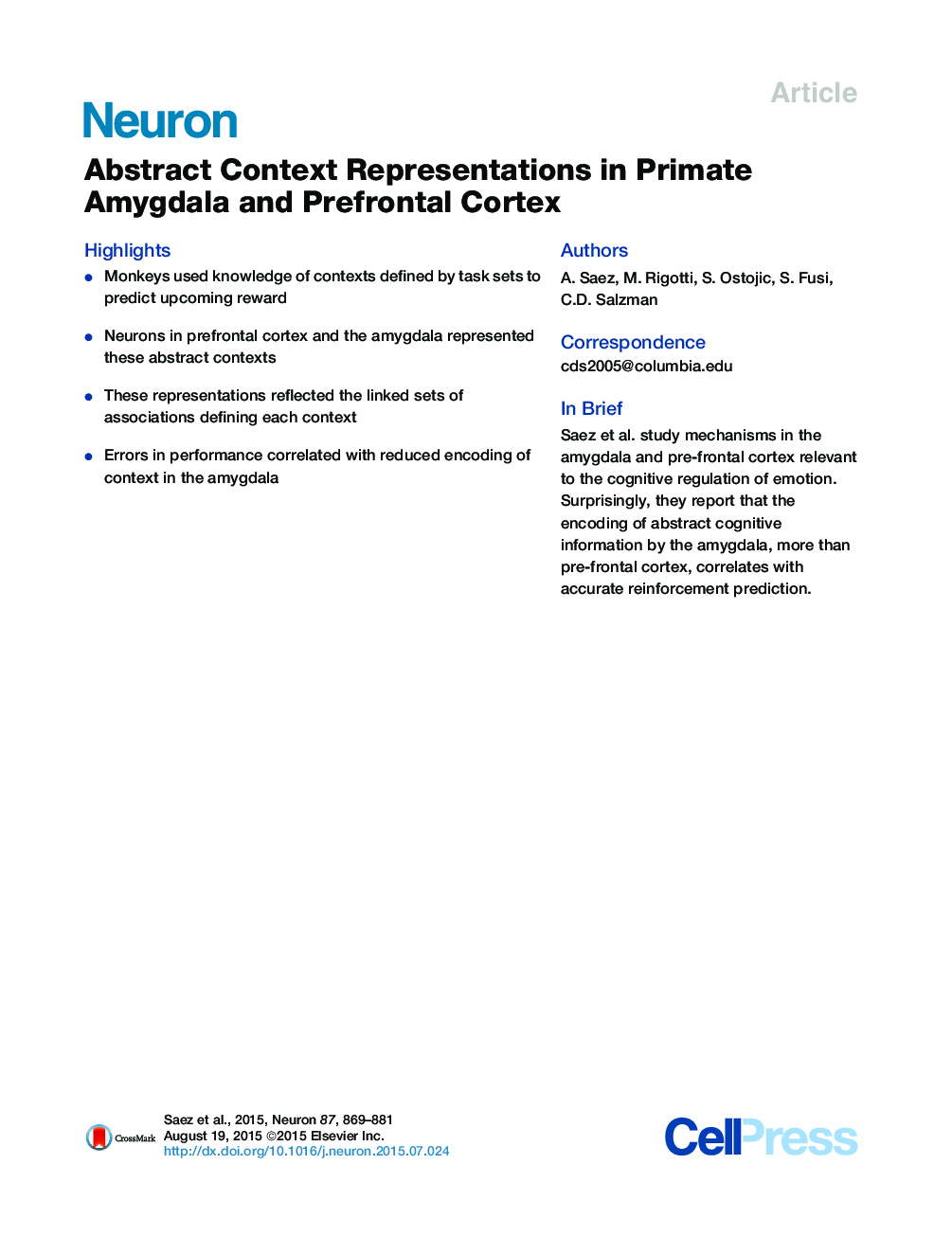| Article ID | Journal | Published Year | Pages | File Type |
|---|---|---|---|---|
| 4320827 | Neuron | 2015 | 13 Pages |
•Monkeys used knowledge of contexts defined by task sets to predict upcoming reward•Neurons in prefrontal cortex and the amygdala represented these abstract contexts•These representations reflected the linked sets of associations defining each context•Errors in performance correlated with reduced encoding of context in the amygdala
SummaryNeurons in prefrontal cortex (PFC) encode rules, goals, and other abstract information thought to underlie cognitive, emotional, and behavioral flexibility. Here we show that the amygdala, a brain area traditionally thought to mediate emotions, also encodes abstract information that could underlie this flexibility. Monkeys performed a task in which stimulus-reinforcement contingencies varied between two sets of associations, each defining a context. Reinforcement prediction required identifying a stimulus and knowing the current context. Behavioral evidence indicated that monkeys utilized this information to perform inference and adjust their behavior. Neural representations in both amygdala and PFC reflected the linked sets of associations implicitly defining each context, a process requiring a level of abstraction characteristic of cognitive operations. Surprisingly, when errors were made, the context signal weakened substantially in the amygdala. These data emphasize the importance of maintaining abstract cognitive information in the amygdala to support flexible behavior.
